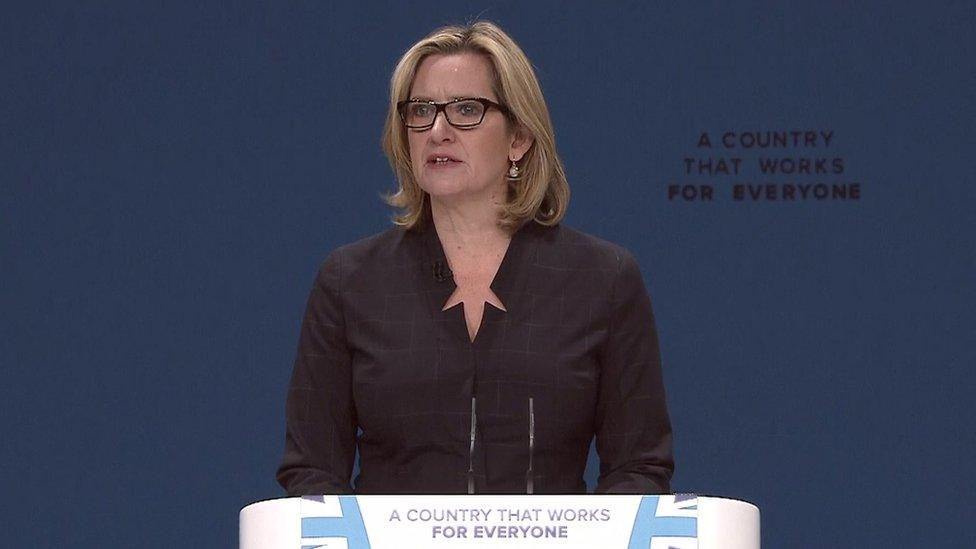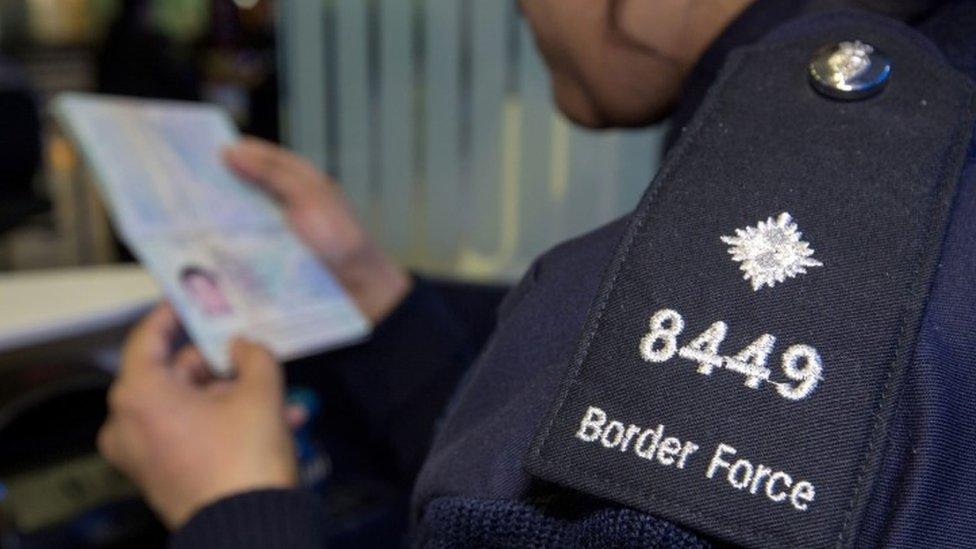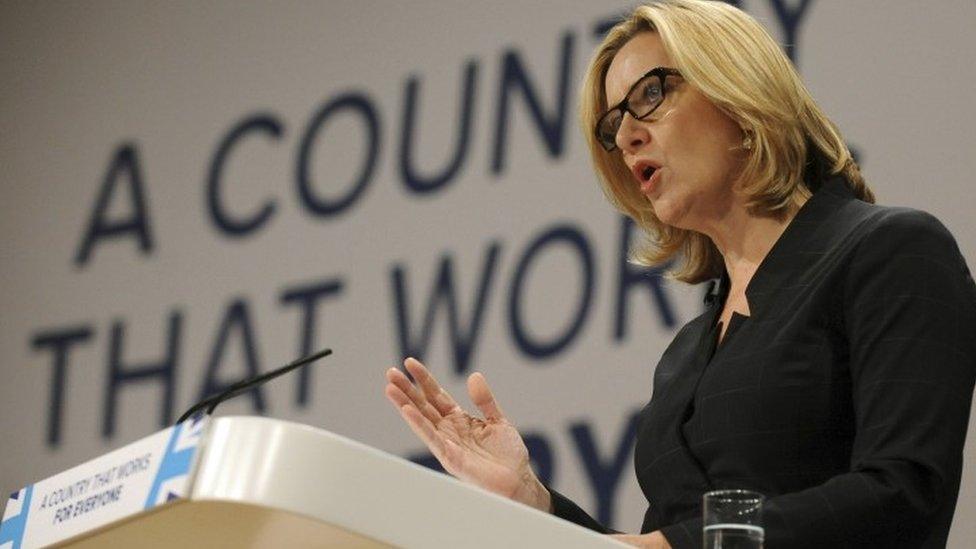UK firms 'won't have to list foreign workers', says Fallon
- Published
Defence Secretary Sir Michael Fallon: "We will not be asking companies to list or name... foreign workers"
UK companies will not be told to list or name foreign workers they employ, the government has said.
Defence Secretary Sir Michael Fallon told the BBC: "This is not going to happen" but said firms could be asked "simply to report their numbers".
That data could help identify skills gaps or be a factor in deciding whether to grant firms more visas for overseas workers, a government source said.
Labour's Diane Abbott said the Tories were in "disarray" over their policy.
'Foreign worker shaming'
A row broke out after a briefing note was distributed following Home Secretary Amber Rudd's speech to the Conservative Party conference last week.
Although Ms Rudd did not mention businesses having to share how many foreign workers they employed, the note contained a proposal suggesting that firms should be "clear about the proportion of their workforce which is international".
One of the critics of the proposal, Steve Hilton, an aide to former prime minister David Cameron, described it on Sunday as "foreign working shaming".

Ms Rudd said British businesses had a "responsibility to local employment"
He addressed his thoughts to Ms Rudd in the Sunday Times, external: "Hey Amber, for your next brainwave, why not announce that foreign workers will have numbers tattooed on their forearms? You might as well do the job of killing Britain's reputation as an open, enterprise economy properly."
SNP leader Nicola Sturgeon suggested it would mean companies being "named and shamed for the foreign workers they employ" while acting director general of the British Chambers of Commerce, Adam Marshall said: "It would be a sad day if having a global workforce was seen as a badge of shame".
But Sir Michael told BBC Radio 5 live's Pienaar's Politics: "What I can absolutely rule out is that we will not be asking companies to list or publish or name or identify in any way the number of foreign workers they have.
"We're going to consult with business, and the consultation document hasn't even been published yet, on how we can do more encourage companies - to incentivise them - to look first at the British labour market. And to offer these jobs to British people, which is what the British people would expect, before they import labour more cheaply from abroad."
He said businesses already had to go through a "resident labour market test" for non-EU workers but the government wanted to examine "whether we can get a better picture of exactly what the dependence on foreign workers is in each particular sector".
'Understandable concerns'
"That would mean, for example, asking companies just simply to report their numbers, which we wouldn't publish, we wouldn't identify anybody."
Education Secretary Justine Greening also told ITV's Peston on Sunday the policy was "about collecting the right evidence if we are going to be able to respond to skills shortages... This is not data that will be published, there will be absolutely no naming and shaming".
And a government source told the BBC there had been a "misunderstanding" rather than a "U-turn" on companies employing foreign workers and a consultation was taking place "so that we can listen to business and use that feedback to inform our decisions".

But Labour's new shadow home secretary Diane Abbott said the government was "in disarray... contradicting each other as their policy falls apart at the seams".
"The Tories anti-foreigner agenda is a distraction from their own complete failures of policy, and against the best interests of society... We need answers on how they will protect our economy, but they have no plan other than a risky hard Brexit which would threat our prosperity."
Liberal Democrat leader Tim Farron was also critical, saying: "The Conservatives are reckless, divisive and uncaring. With Labour saying they did not object to this disgusting plan in principle, the Liberal Democrats are now the real opposition to the Conservative Brexit government."
Business organisation the CBI said it welcomed the "positive announcement" that firms would not be required to list their foreign employees.
But it said: "The £45bn business invests in training each year must complement education and skills development in schools, further education and higher education.
"This will give us the foundation to develop an approach to migration that both supports the economy and deals with public concerns in the long run."
Following criticism, Ms Rudd defended her proposals earlier in the week. She told the BBC that British businesses had a "responsibility to local employment and we're asking them to join us on this journey so they don't automatically go abroad".
This was just one of several schemes under consideration and "not something we're definitely going to do", she added.
- Published5 October 2016

- Published5 October 2016

- Published4 October 2016
